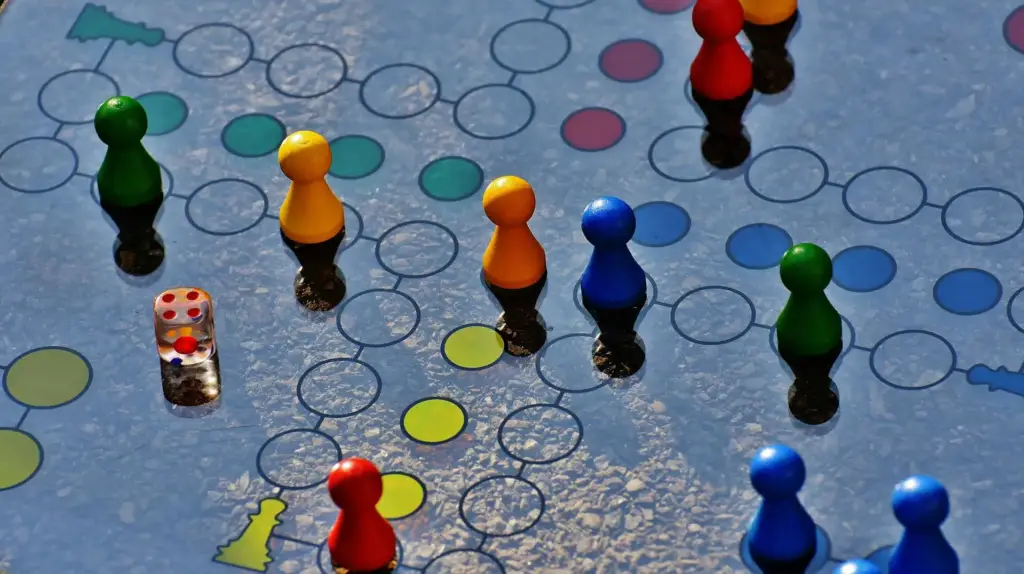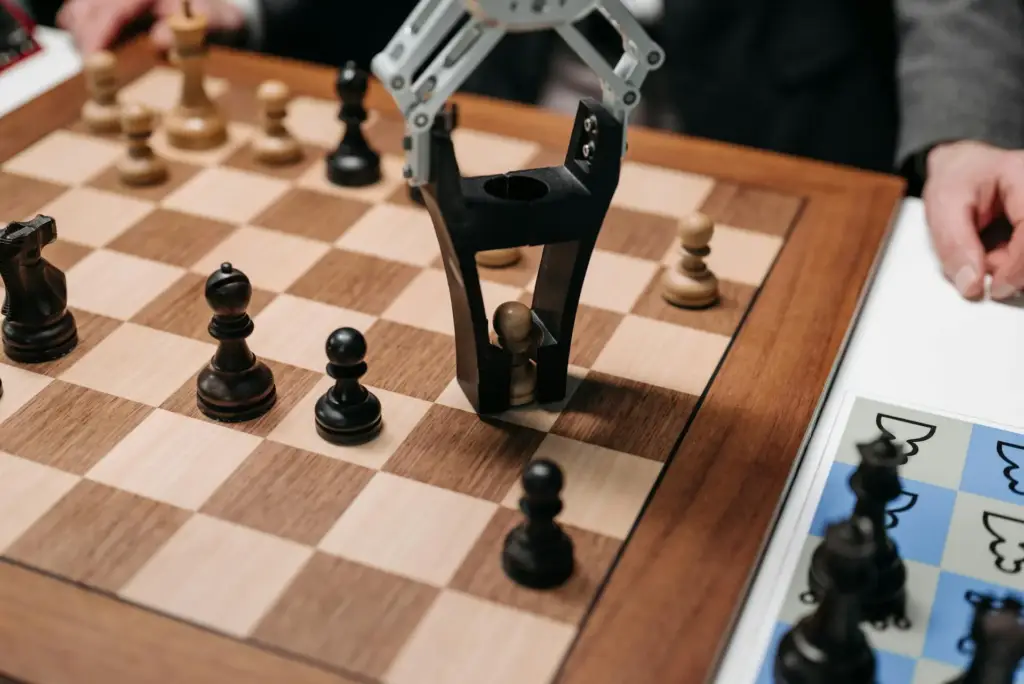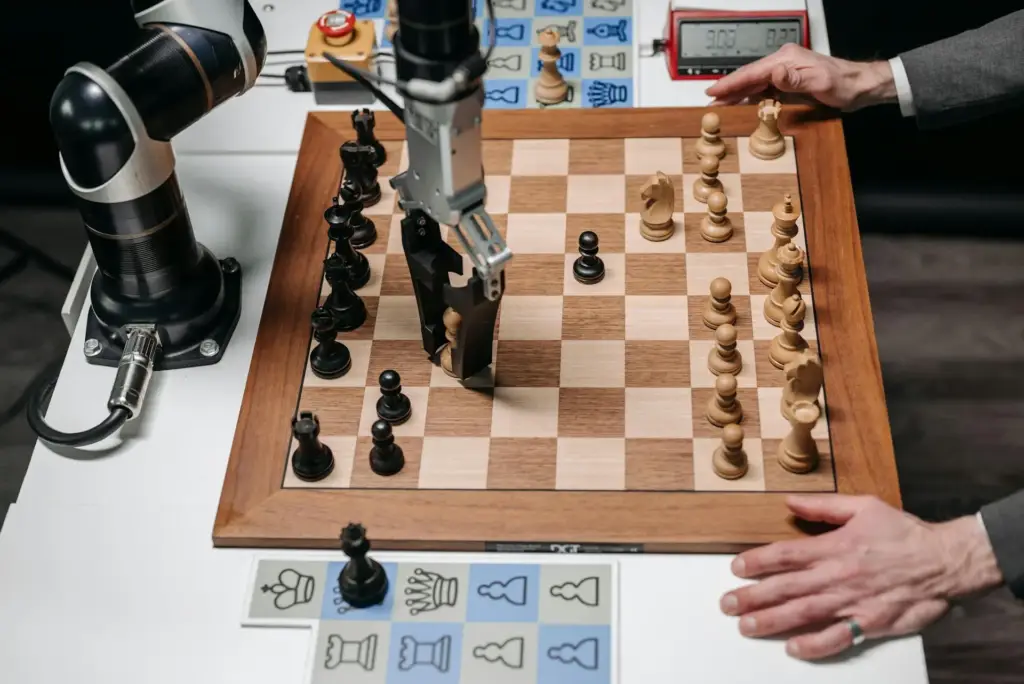The AI and strategy games have had a very close relationship practically since the birth of AI. Today, artificial intelligence is not only capable of playing, but also of mastering complex games such as chess, Go and StarCraft II. The ability of AI to adapt, learn and outperform human players in such games it is fascinating.
How AI is Changing Strategy Games?
The combination of AI and strategy games has led to the creation of systems that can analyze millions of plays in an instant. These systems, based on machine learning and deep learning algorithms, learn from large amounts of data and become increasingly competitive.
Unlike human players, who learn through direct experience, the AI trains by playing millions of simulated games. In this way, it develops strategies that may be unexpected or completely new to traditional players. This allows it to identify patterns, evaluate multiple scenarios and predict opponents’ actions with impressive accuracy.

AI Outperforming the Masters in Classic Games
The relationship between AI and strategy games began to attract global attention with chess. In 1997, the IBM-developed Deep Blue computer defeated world champion Garry Kasparov. This was a landmark event, proving that AI could compete at a higher level than the best human players in complex games.
However, it wasn’t until 2016 that AI really proved its capability in even more complex strategy games. AlphaGo, developed by DeepMind, beat Lee Sedol, world Go champion. Unlike chess, Go has more possible combinations than there are atoms in the universe, making it a formidable challenge for any AI. AlphaGo not only won, but showed moves never before seen in the history of the game, redefining what was thought possible.


Real-Time Strategy Games and the AI
AI and strategy games have also made inroads into real-time strategy (RTS) titles such as StarCraft II. These types of games require precise and fast execution, as well as simultaneous management of multiple resources. AI systems, such as DeepMind’s AlphaStar, have managed to outperform professional StarCraft II players, proving that they can handle the complexity and dynamism of this type of game.
AlphaStar trained by playing against itself millions of times, developing strategies based on unit combinations and micromanagement tactics that exceeded the expectations of human players. As in the case of AlphaGo, the AI proved that it could innovate in executing unexpected and difficult-to-counter strategies.

What Makes AI and Strategy Games So Challenging?
AI and strategy games face unique challenges. These games require long-term planning, adaptability and the ability to manage limited resources. In addition, uncertainty is a constant factor. Unlike other games, such as chess, where both sides see the entire board, in strategy games like StarCraft II information is hidden. This means that the AI must make decisions based on incomplete information and predict the opponent’s actions.
To overcome these challenges, AIs use advanced techniques such as neural networks and Monte Carlo search algorithms. These technologies enable them to evaluate millions of possible scenarios and select the best option at any given time. By combining this with reinforcement learning, the AI can refine its skills through continuous practice.
Impact of AI on Strategy Game Design
The evolution of AI and strategy games is not only improving gameplay, but also the design of these games. Developers are using AI to create more challenging and realistic opponents that can adapt to the user’s play style. This allows players to face more varied and less predictable challenges.
In addition, the AI is being used to design new game mechanics, balance units and dynamically adjust difficulty. In this way, the player experience is enhanced, making it more engaging and personalized.

Where is AI in Strategy Games Headed?
The future of AI and strategy games is exciting
As technology continues to advance, AIs are expected to not only dominate existing games, but also contribute to the development of new titles. The ability to create opponents with adaptive intelligence opens up a range of opportunities for game developers.
In addition, AI capabilities could lead to the creation of unique gaming experiences. These experiences would allow players to compete with opponents that adapt to their skill level, making each game different and challenging.
Conclusion
The AI and strategy games are changing the way we understand and play these titles. Artificial intelligence is not only beating human players, but also redefining the strategies and tactics used. As AI continues to evolve, its role in strategy games will continue to grow, creating richer and more challenging experiences for players around the world. We have seen that AI is currently being used in video games to improve game behavior and enhance the experience for gamers. We can only look forward to what the future holds as it looks to be very exciting.

